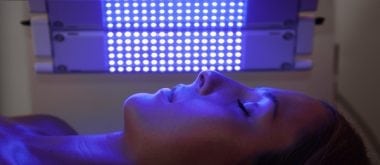All women will experience menopause within their lifetime. Most women will experience menopause between the ages of 45 and 55. But some women may experience symptoms much earlier. From start to finish, the process may take 2 – 10 years. Menopause is a time of change, which may result in emotional reactions.
Depression: A Typical Sign of Menopause
Research shows that one in four women, who have never experienced depression, will develop it during menopause. Around 60 percent of women with a history of depression will experience it again during depression. The North American Menopause Society found that 23 percent of women will experience mood swings before, during, or after menopause. For some women these mood swings have been known to lead to depression.
Causes
When menopause begins the ovaries are shutting down, which results in a steady decline of estradiol and a dramatic fluctuation of estrogen inside of the body. This fluctuation within estrogen levels has been tied to a disruption in mood.
Estrogen encourages the production of serotonin. Serotonin helps to regulate mood. Due to the fluctuation and decline of estrogen levels during menopause, serotonin and mood can become destabilized. The drop in estrogen also affects the level of norepinephrine, which is a substance linked to depression. Lower levels of serotonin and norepinephrine have been linked to fatigue, stress, irritability, anxiety, and difficulty concentrating.
Risk Factors
Research says that two important risk factors for mood swings and depression are a history of severe menstrual syndrome (PMS) and prior episodes of depression or mental health problems. Twice as many women than men develop depression at any age or life stage due to hormone fluctuation within the body.
Women may have a greater risk of depression if they have any of the following situations:
- in a difficult living situation
- have a great deal of stress within their lives
- are in an unsatisfactory relationship with loved ones.
While the underlying causes of depression include hormonal and genetic factors, research suggests that stressful life events such as these are one of the most significant risk factors.
Treatment Options
When it comes to depression during menopause there are quite a few treatment options available.
- Hormone Replacement Therapy. This treatment will not treat depression itself, but it may help
to minimize the shift in serotonin and other hormones. By helping to minimize the shift in hormones, this may help improve depressive symptoms.
- Antidepressants. Antidepressants are medication that can help relieve some of the symptoms of depression. Discuss with your doctor if antidepressants may be right for you.
- Exercise. Regular exercise can help promote both mental and physical health. Exercise can help to relieve stress and improve moods. The Centers for Disease Control and Prevention recommend 2.5 hours of moderately intense exercise a week, plus two days of strength training.
- Diet. Eating a healthy diet filled with protein and omega-3 fatty acids can help to reduce menopausal mood swings and depression.
- Try yoga. Research shows that practices such as yoga, meditation, and tai chi can help to manage stress, irritability, and other symptoms of mood swings and depression.
- Talk it out. Talk therapy may help women to cope with the shifts and changes during menopause.
Differences between Perimenopausal and Menopausal Depression
Studies show that women who experience perimenopause or early menopause are more likely to develop depression. Early menopause is the three- to four year period immediately prior to menopause. Usually irregular periods occur until they eventually stop, after they have ceased for twelve months consistently then menopause has occurred. Depression during perimenopause may occur alongside with hot flashes and sleep disturbances.
Menopause marks the complete decline of estrogen and serotonin levels. Depression may occur once these levels have dropped and remain in a decline for the twelve months prior.
Symptoms of Menopausal Depression
If you are experiencing depression during menopause you may also experience one or more of these symptoms alongside of it:
- Restlessness
- Fatigue
- Trouble sleeping
- Oversleeping
- Feelings of worthlessness or guilt
If you are suffering from depression and natural approaches are not helping, it may be time to consult a medical practitioner or mental health professional.

 to minimize the shift in serotonin and other hormones. By helping to minimize the shift in hormones, this may help improve depressive symptoms.
to minimize the shift in serotonin and other hormones. By helping to minimize the shift in hormones, this may help improve depressive symptoms.



